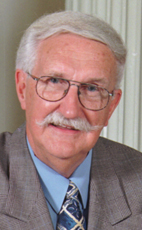Madam Speaker, I am pleased to address Bill C-23, the Modernization of Benefits and Obligations Act, which I fully support.
This omnibus bill, introduced on February 11, 2000, essentially seeks, for reasons of equity, to modernize certain benefit and obligation plans. The bill guarantees that common law partners, whether same sex or opposite sex, will be treated equally before the law.
As my colleague from Burnaby—Douglas mentioned, the road to full equality for gays and lesbians has been long and often hard and chaotic, as I am sure the member for Hochelaga—Maisonneuve will agree.
The proposed changes will ensure, in accordance with the May 1999 supreme court decision in M v H, that same sex common law couples have the same benefits and obligations as opposite sex common law couples, and the same access to social benefit programs they have contributed to as other Canadian couples.
Co-sponsored by the Minister of Justice, the Minister of Finance, the President of the Treasury Board, the Minister of Human Resources Development and the Minister of Citizenship and Immigration, the bill involves 20 departments and agencies. The Income Tax Act, the Canada Pension Plan, the Criminal Code, and the Old Age Security Act, among others, will be amended.
It was in 1979 that the Canadian Human Rights Commission recommended for the first time that sexual orientation become a prohibited ground of discrimination under the Canadian Human Rights Act.
In August 1992, the impact of the charter on the Canadian Human Rights Act was confirmed by the Ontario Court of Appeal in Haig v Canada.
The Ontario Court of Appeal maintained the lower court's decision that the absence of sexual orientation from the list of prohibited grounds of discrimination in section 3 of the Canadian Human Rights Act was in violation of section 15 of the charter.
Quebec was the first province to include sexual orientation in the list of prohibited grounds of discrimination when it amended its Charter of Human Rights and Freedoms in 1977. I would also like to mention the work of the national organization for equal rights called Egale—Equality for Gays and Lesbians Everywhere—that was very pleased with the introduction of Bill C-23 in the House of Commons.
Kim Vance and John Fisher, both leaders of the national group Egale, thought it was a historic day for their community. In fact, I was guest speaker at the group's last convention and I encouraged the members to continue their work to eliminate all forms of discrimination against gays and lesbians.
I also want to quote an article by Murray Maltais published in Le Droit on February 17, 2000. He wrote “This is an issue of law, not of morals”. I might add that this is not an issue of religion either.
In another article published in Le Devoir , on February 16, 2000, Alain-Robert Nadeau had this to say about Bill C-23:
This is why this legislative measure by parliament, like that of the Quebec National Assembly, seems to go against the tradition of openness and tolerance which characterizes Canadian society. Even in the United States, where liberalism is definitely not a main trait of society, some presidential candidates—namely John McCain—feel that Americans would be ready to elect a homosexual president.
We need to remember that interracial marriages were illegal until the United States Supreme Court brought down its decision in Loving v. Virginia in 1967. In Canada, until the positive intervention of Pierre Elliott Trudeau, homosexuality constituted a criminal act. In this case, let us render unto Caesar the things that are Caesar's.
What is more, the states of California and Hawaii also give partial recognition to unions between persons of the same sex.
Every year, complaints are filed with human rights commissions on the federal or provincial level concerning discrimination toward homosexuals relating to hiring, firing and treatment in the workplace. This and other evidence points to discrimination against homosexuals. Sexual orientation is, unfortunately, a rarely mentioned factor in suicide.
Studies reveal that young people, both male and female, who are homosexual are two to three times more likely than other young people to commit suicide. More than three-quarters of these give as the main reason for their suicide attempt the conflicts arising out of their sexual orientation. This is a clear demonstration of the negative environment in which homosexuals have to live and grow up.
In conclusion, I wish to repeat what I said in the beginning about the committed contribution by the hon. members for Hochelaga—Maisonneuve and Burnaby—Douglas to defending the gay and lesbian minority and I call upon the hon. members of this House to show their support to Bill C-23.

